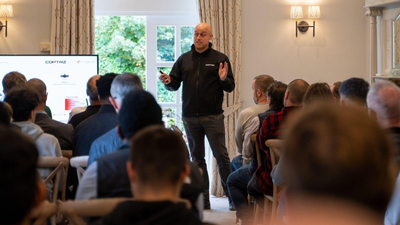Drone Pilot Jobs Explained: Who Hires Them & What They Do
- by Stefan Gandhi
Drone technology has moved well beyond its origins in hobby flying and aerial photography. Today, drones are essential tools across a growing number of sectors, creating lucrative job opportunities for certified drone pilots. From survey mapping and inspections to creative media and emergency services, demand continues to expand as industries seek cost-effective and innovative aerial solutions.
If you are considering a career as a professional drone pilot in the UK, it’s important to understand who hires drone pilots, what kind of work is involved and what qualifications you may need to break into the field.

Who Hires Drone Pilots in the UK
The list of employers and clients seeking skilled drone pilots is as diverse as the applications themselves. Here are the primary sectors currently driving demand:
Construction and Infrastructure
Construction firms use drones for progress monitoring, site mapping and inspection. Drones provide a fast and safe way to capture top-down visuals, 3D models and volumetric data. Surveyors and project managers rely on pilots to deliver accurate reports without disrupting work on the ground.
Real Estate and Property Marketing
Estate agencies and developers increasingly use drone footage to showcase properties. Aerial images help highlight location, layout and surroundings. This is especially popular for rural homes, new builds and large commercial sites where ground-level imagery falls short.
Film, TV and Creative Content
Drone cinematography has become a staple in filmmaking, music videos and promotional campaigns. Whether flying above film sets or tracking fast-moving subjects, pilots are hired for their ability to combine creative composition with technical skill.
Agriculture and Land Management
Farms and rural estates use drones for crop monitoring, livestock management and land surveys. Equipped with multispectral or thermal sensors, drones can help identify health issues in crops or locate missing animals, making operations more efficient.
Utilities and Infrastructure Inspection
Energy companies and utility providers rely on drones to inspect power lines, wind turbines, telecom masts and pipelines. These tasks are often high-risk for manual teams. Trained pilots using drones can complete inspections more safely and at lower cost.
Emergency Services and Public Safety
Police, fire brigades and search-and-rescue teams use drones to support operations. From overhead surveillance to locating missing persons, drones offer real-time data in fast-moving scenarios. Pilots working in this sector may be embedded in public service teams or contracted externally.
Environmental Monitoring and Research
Environmental agencies and conservation groups use drones to track wildlife, monitor deforestation or assess coastline changes. Accurate aerial data helps researchers and scientists gather insights over large areas without physical intrusion.

What Drone Pilots Do Day to Day
A drone pilot’s responsibilities vary depending on their specialism, but typical tasks include:
- Planning and executing safe drone flights
- Conducting pre-flight inspections and airspace checks
- Capturing aerial imagery or video based on client briefs
- Operating specialist payloads such as thermal or LiDAR sensors
- Processing and editing captured data using software
- Complying with aviation regulations and flight permissions
Some pilots work freelance, while others are employed by agencies, production companies or technical service providers. Many start small, building a portfolio of projects and growing through client referrals.

Required Skills and Certifications
To work professionally as a drone pilot in the UK, you’ll need the right training and certification. For many commercial roles, the A2 Certificate of Competency (A2 CofC) is the minimum legal requirement. It allows pilots to fly certain drones in the Open Category closer to people and buildings.
For higher-risk operations or work in the Specific Category, such as flying near infrastructure or using heavier drones, the General Visual Line of Sight Certificate (GVC) is essential. This involves practical assessments, theoretical exams and submission of an operational manual.
In addition to qualifications, employers look for:
- Strong spatial awareness and hand-eye coordination
- Good understanding of weather and environmental factors
- Technical knowledge of drone systems and sensors
- Photography, videography or data analysis skills
- A responsible and safety-conscious mindset

Earning Potential and Career Growth
Entry-level drone pilots may earn £100–£200 per day on freelance projects. With more experience, niche expertise or special equipment, pilots can command higher fees. Some move into consultancy, training or equipment supply, while others build their own drone service businesses.
The career path is varied and adaptable, depending on your interests and how you want to specialise. Sectors such as renewables, urban planning and smart agriculture are set to expand their use of drone services in the coming years.
Conclusion
Drone pilots are no longer just flying cameras in the sky. They are data collectors, visual storytellers, infrastructure assessors and emergency responders. If you have the skills and the vision, there is real potential to build a rewarding career in this growing field.
Looking to get started or develop your credentials as a professional? Sign up at shop.coptrz.com for an online training course like the A2 CofC or GVC, and take your next step towards becoming a certified drone professional.




